The Canoe Is the People
Indigenous Navigation in the Pacific
The stars can never go wrong
Thousands of years ago, when most sailors were still hugging the coast, the island peoples of the Pacific held the knowledge and skills to explore the great ocean paths extending far beyond their homes. Modern instruments didn't exist - no compasses, no radio, no radar GLOSSARY radar - a system that uses electromagnetic waves to locate surrounding objects , no GPS GLOSSARY Global Positioning System (GPS) - a handheld computer that tells your position by communicating with satellites . The Pacific peoples found their way across the ocean, guided by the wind, waves, stars, and sea life.
Ancient voyagers did not use metal or fiberglass to make their boats, nor plastics to make rope or dacron for their sailcloth. They did not use outboard motors or diesel engines. They made sturdy boats from natural materials: rope from plant fibers to lash the canoe together, the leaves of plants to make their sails. They used the wind to move across the ocean. Their knowledge was built up through generations of experience. It was handed down through teaching, stories, and songs.
An experienced Tongan wayfinder once said, “The compass can go wrong, the stars never.” From David Lewis in Bader, H. and McCurdy, P., eds (1999). And that is the beauty of Pacific wayfinding. Voyage into this website to find out more…
We are all high achievers
Cook Islands wayfinding student Kaiki Tarangi (Karl)
“If my ancestors can sail the biggest ocean in the world, I can take on the whole world. Has it changed my journey in life? It’s actually given me a kick up the butt. It says ‘We can do this. Come on, boy. You got a gift. We gave it to you. You do everything you can with it.’ And it’s not like smacking my bottom. It’s more like the challenge has been set. We’re all high achievers.”





